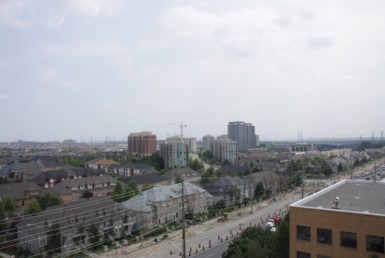Canada’s housing market is stronger than it looks

Why Canada’s housing market is stronger than it looks – and recovery is just around the corner
But the market is stronger than it looks. And that will become clear later this year and next.
However, pessimism is inevitable. Finally, since the market peaked last February, the decline in the average Canadian home price is one of the largest on record. And also one of the fastest, not least fueling fears of a major recession.
The Canadian Real Estate Association (CREA) home price index fell 13 percent in the short 10-month span from February to December last year.
This compares to a nine percent decline during the 2008-09 financial crisis that triggered the Great Recession.
And the market is expected to fall further as, for one, CREA predicts another nearly 6 percent fall in the average Canadian home price this year.
Mortgage rates, of course, have roughly doubled since last March, when the Bank of Canada embarked on one of the most aggressive rate-hike cycles in its history.
In its latest forecast this week, CREA said most first-time homebuyers will likely remain effectively locked out of the market “until mortgage rates are lower than they are today.”
But even in a market as transparent as the real estate market, appearances can be deceiving.
Be prepared for reports in early April of another sharp drop in house prices in the first fiscal quarter of this year.
But the reports will be misleading because they will compare an anemic first quarter of 2023 to the same quarter last year when prices were at their peak.
After that, reported house price declines will shrink for the rest of the year.
What is important for those affected is that the market does not come back.
Your house is probably worth more than you paid for it. In most cases a lot more.
According to CREA calculations, the average Canadian home price in December was still about 33 percent higher than the same period in 2019.
In fact, even if you bought in the busiest part of the market, it’s probably worth more than you paid for.
Like Royal LePage Real Estate Services Ltd. calculated this week in its latest market report, fewer than 113,000 resales took place during the “hyped” period of February and March when prices were at their highest.
That’s just 0.68 percent of all homes in Canada.
And most of those transactions were funded with mortgages granted before or shortly after the bank began raising interest rates from a 0.25 percent low in March, and several months before the policy rate hit it’s current 4.25 percent reached.
A key measure of the health of the housing market is the mortgage arrears rate.
Remember that during the buying frenzy, the Feds imposed strict mortgage eligibility rules on potential homebuyers. Thanks to those rules and higher mortgage rates that have deterred buyers, the most recent default rate for the third quarter of last year is just 0.06 percent.
That’s a 10-year low and compares to a default rate of 0.24 percent in the year of the Great Recession of 2012.
“Many sidelined buyers are patiently waiting for the bottom to be known,” said Phil Soper, CEO of Royal LePage. “Once interest rates stabilize and consumers adjust to their new normal, many of today’s shoppers will come back – sooner than many analysts are predicting.”
This pent-up demand is found among Millennials and older Gen-Zers. Many of them expect rising rents to make even high mortgage payments a better deal.
Added to this is the record stream of immigrants, most of whom are settling in Canada’s major cities. The government plans to immigrate 400,000 more in 2023 and 2024, in addition to the 431,000 new Canadians who arrived last year.
Focusing on the GTA market, Karen Yolevski, Chief Operating Officer of Royal LePage, said last week: “With record-breaking immigration numbers last year and similar numbers expected in 2023, additional demand will come to a region struggling with is struggling with a chronic shortage of inventory.”
Housing will remain scarce for the rest of this decade, which means prices will rise.
And while another quarter-point rise in the BoC benchmark interest rate is widely expected on Jan. 25, this is the year interest rates stop rising.
This year will also set the stage for a rebound in property prices in 2024. And CREA forecasts that the average home price in Ontario will rise 1.1 percent next year and the Canadian average price will rise 3.5 percent.
The worst real estate price drop is over and the recovery will start soon. Meanwhile, the sidelines can be a relaxing spot.
It certainly beats the ancient bidding wars when buying a home became secondary to winning some sort of stress contest.
SHARE:
Source: www.thestar.com




